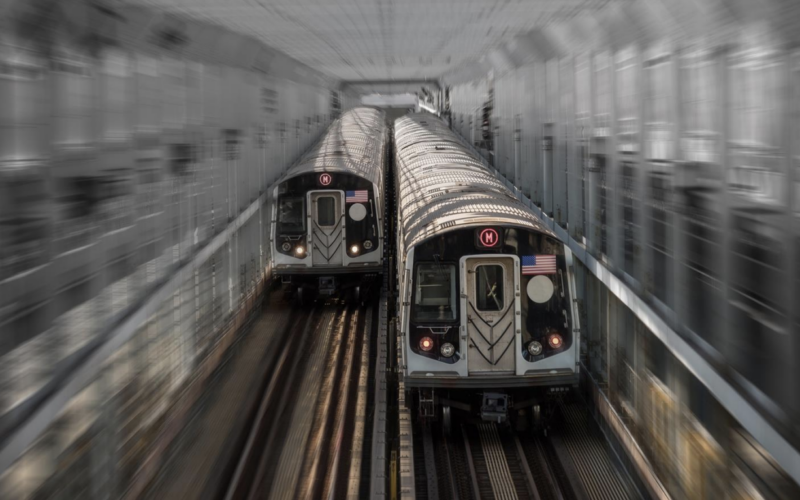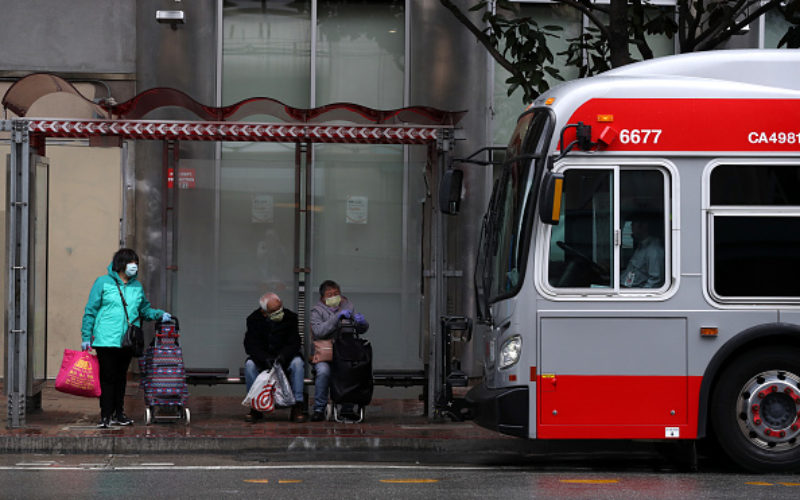
This post was written by TransitCenter’s Communications Graduate Fellow Melanie Marich
For nearly a century, transit infrastructure has been funded in part by the gas tax. This tax on gasoline funds a variety of infrastructure and operations projects on a federal and state level, including highway maintenance, bridge and road construction, and mass transit. In a new report from the MIT Mobility Lab and JTL Transit Lab called “Replacing the Gas Tax,” the researchers sound the alarm about how revenue collected from the gas tax will continue to decline as electric vehicles (EVs) are increasingly adopted. As EV adoption grows, states will eventually lose their most consistent source of transit funding, a source that was flawed from the start. Along with this report, other organizations are also sounding off on the impending gas tax dilemma. Transportation for America recently released a new framework for evaluating gas tax alternatives that is good complimentary reading to the “Replacing the Gas Tax” report.
History of the Gas Tax and the Rise of Electric Vehicles
For decades, the gas tax has been a bedrock of funding for maintaining and improving transportation infrastructure, ranging from roads and highways to mass transit. But this funding model has been inadequate for many reasons. For one, the revenue collection has not matched the Highway Trust Fund – which funds a majority of federal spending for highways and mass transit – since 2008. The federal gas tax hasn’t been raised since 1993 and hasn’t kept pace with inflation, especially as gas-powered vehicles have become more fuel-efficient and EVs become more popular. As these market trends continue, the revenue from the gas tax will continue to decline, leaving a massive funding gap. The authors of “Replacing the Gas Tax” concluded that if all current trends remain the same and nothing is done to substantiate the gas tax revenue, the US gas tax revenue loss will be around $25B by 2035. As always, there is an opportunity in crisis, and this could prove a pivotal moment to rethink transit’s revenue streams.
The Impact on Mass Transit Funding
Both the federal government and individual state governments collect gas taxes. Many states allocate their gas tax revenue to support public transit projects, including New York, New Jersey, and Maryland (Tax Policy Center). In Maryland, for example, gas tax collection goes into the Transportation Trust Fund, which helps fund capital transit projects like the MDOT Maryland Purple Line, a light rail line that will connect several counties in Maryland and provide better access to the University of Maryland. Where they are in place, state-level gas taxes are an important revenue source for transit capital expenses.
Alternate Funding Solutions and the Need for Long-Term Planning
As the country and individual states move away from cars powered by fossil fuel and towards electric vehicles, the decreased revenue from the gas tax provides an opportunity for policymakers to rethink how we fund transit and implement more financially sustainable models. “Replacing the Gas Tax” proposes a few models based on some key factors: ease of administration, resistance to easy evasion from drivers, stability over time, and fairness and equity considerations. Some of the models evaluated include fixed point-of-sale fees for EVs, road user charging fees, and mileage fees. The researchers found that the most effective methods, based on the criteria of traffic congestion, road impacts/wear and tear, safety, and emissions, were variable road user charging and variable vehicle miles traveled (VMT) charging. However, the researchers also make clear that no single solution will fix the problem and that it is likely that a combination of strategies on both state and federal levels will be necessary to fix the gas tax revenue deficiency.
Transportation for America also recently released a new framework for evaluating gas tax alternatives. The framework’s authors outline four main standards by which to measure the effectiveness of a proposed alternative: revenue stability, incentives and outcomes, equity, and feasibility/scalability. The tool is meant to guide discussion specifically on revenue collection and the policies that will provide support in the face of ever-decreasing gas tax funds.
The funding alternative currently gaining the most traction is road pricing, or VMT fees. VMT fee pilots have been deployed in several states, most notably Oregon, and Congress has recently directed the US Department of Transportation to develop a national pilot as a way to restore solvency to the Highway Trust Fund (Replacing the Gas Tax, p. 43).
Although each of these models comes with its own considerations and drawbacks, it is imperative that federal and state policymakers charged with making decisions about how these funds are allocated take a proactive approach to the diminishing returns on the gas tax and the opportunity presented by the growing prevalence of EVs. Although a few states have begun to propose EV-centered tax models, such as road user charges in Pennsylvania, Iowa, and Oklahoma, none of these proposals have called for an increased share of this revenue to go toward transit. This is a missed opportunity. We know that transit has been underfunded for decades, denying us the freedom of abundant, frequent, reliable mobility. We also know that better transit is an essential way for our cities and regions to meet climate, social, and economic goals. As we look towards the phaseout of gas-powered cars, replacing the gas tax gives us a chance to reimagine how we fund the public good that is public transit.
 Surmounting the Fiscal Cliff: Identifying Stable Funding Solutions for Public Transportation Systems
Surmounting the Fiscal Cliff: Identifying Stable Funding Solutions for Public Transportation Systems
Urban Institute's latest report, "Surmounting the Fiscal Cliff," seeks to understand why transit agencies—unlike many other public services—continuously face fiscal instability.
Read More The CARES Act Came Up Short, Now Transit Agencies Are Running Out of Time
The CARES Act Came Up Short, Now Transit Agencies Are Running Out of Time
The $25 billion for transit in the CARES Act, which passed in March, bought agencies in major cities a few months. But CARES funding was not sufficient to address the scale of the transit crisis, nor was it targeted well.
Read More